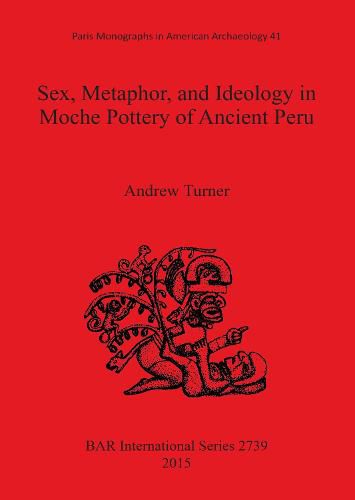Readings Newsletter
Become a Readings Member to make your shopping experience even easier.
Sign in or sign up for free!
You’re not far away from qualifying for FREE standard shipping within Australia
You’ve qualified for FREE standard shipping within Australia
The cart is loading…






This title is printed to order. This book may have been self-published. If so, we cannot guarantee the quality of the content. In the main most books will have gone through the editing process however some may not. We therefore suggest that you be aware of this before ordering this book. If in doubt check either the author or publisher’s details as we are unable to accept any returns unless they are faulty. Please contact us if you have any questions.
The Moche art style is best known through its highly refined ceramic vessels, which frequently accompanied burials. Estimates suggest that there are over 100,000 Moche vessels in museum and private collections worldwide (Donnan 1976: 13). The vessels, often decorated in a strongly pictorial style uncharacteristic of art of the Central Andean region, offer modern viewers tantalizing glimpses of Moche worldview. The highly consistent and formalized iconography on Moche vessels has been the topic of numerous studies, beginning around the middle of the last century, which have shed light on important aspects of Moche society such as mythology, social organization and ceremonialism. A particularly confounding subset of Moche ceramics portrays figures, including deities, skeletal beings, humans and animals, engaged in sexual acts. While such vessels inevitably arouse the interest of modern museum visitors, to date, relatively few scholarly studies have investigated the emic meanings of Moche sexual vessels and the artistic intent behind their creation. This study focuses on portrayals of an often-depicted Moche deity who, in this instance, copulates with a woman figure and argues that such images drew upon widespread beliefs concerning the functions of a vital cosmos to make potent ideological claims of legitimacy in a richly metaphorical visual landscape.
$9.00 standard shipping within Australia
FREE standard shipping within Australia for orders over $100.00
Express & International shipping calculated at checkout
This title is printed to order. This book may have been self-published. If so, we cannot guarantee the quality of the content. In the main most books will have gone through the editing process however some may not. We therefore suggest that you be aware of this before ordering this book. If in doubt check either the author or publisher’s details as we are unable to accept any returns unless they are faulty. Please contact us if you have any questions.
The Moche art style is best known through its highly refined ceramic vessels, which frequently accompanied burials. Estimates suggest that there are over 100,000 Moche vessels in museum and private collections worldwide (Donnan 1976: 13). The vessels, often decorated in a strongly pictorial style uncharacteristic of art of the Central Andean region, offer modern viewers tantalizing glimpses of Moche worldview. The highly consistent and formalized iconography on Moche vessels has been the topic of numerous studies, beginning around the middle of the last century, which have shed light on important aspects of Moche society such as mythology, social organization and ceremonialism. A particularly confounding subset of Moche ceramics portrays figures, including deities, skeletal beings, humans and animals, engaged in sexual acts. While such vessels inevitably arouse the interest of modern museum visitors, to date, relatively few scholarly studies have investigated the emic meanings of Moche sexual vessels and the artistic intent behind their creation. This study focuses on portrayals of an often-depicted Moche deity who, in this instance, copulates with a woman figure and argues that such images drew upon widespread beliefs concerning the functions of a vital cosmos to make potent ideological claims of legitimacy in a richly metaphorical visual landscape.